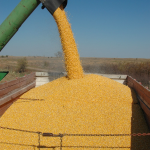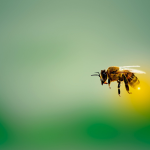Politicians are attacking a safe and important class of pesticides – neonicotinoids – with unwarranted bans and restrictions. These policies will be devastating to farmers, costly to consumers, and damaging to the environment.
neonicotinoids
New York State's legislators are about to place drastic restrictions on neonicotinoids ("neonics"), a popular, safe, and effective class of pesticides. They're putting the bogus claims of activists ahead of the welfare of consumers and farmers. Let's hope Governor Hochul will be more sensible and veto the bill.
Bees are vital to our lives; without them, there would be no almonds, and few apples, onions, blueberries, carrots, or even, perish the thought, coffee. According to the Center for Biological Diversity, "more than half of North America’s 4,000 native bee species are in decline, with 1 in 4 species at risk of extinction.” The standard narrative in the words of Food and Water Watch is that “Bee colonies are in the midst of a massive die-off, thanks to dangerous pesticides that poison them and destroy their habitats.” A new study in Nature debunks that belief.
A ban instituted at the behest of anti-science NGOs and their donors people who had little familiarity with science or farming or farmers - in Europe should be removed.
An informative Washington Examiner article by T. Becket Adams hits the nail on the head in explaining the major problem plaguing science that ACSH has worked to combat: junk studies, and the sloppy media coverage that ensues. The piece also includes quotes from many experts associated with ACSH.
A supposedly scientific body in the EU has called for stringent restrictions and bans on neonicotinoid (neonics) pesticides, based on...who knows what? Sustainability? Biodiversity? Whatever: the evidence on bee colony effects didn t work, so let s try these.
It has been accepted dogma in certain circles that we a suffering a global catastrophe of bee colony collapse, which, of course is caused by use of insecticides.
The only problem with this is, as we have discussed before, there is no bee colony collapse:
Dr. Henry Miller recently penned an informative piece on the EPA s chemophobia for Forbes.com titled A Wake-Up Call for U.S. Farmers: The EPA Is Trying to Put You Out of Business. He argues that American farmers, and the rest of us, need to realize the damage that will be done if the EPA needlessly restricts or eliminates neonics. Dr. Miller references the EPA s recently issued report claiming that neonics provide negligible overall benefits in growing soy crops. However, they
In a masterful example of thorough scientific reporting, Jon Entine makes it clear that the recent accusations that the group of pesticides called neonicotinoids (neonics) is responsible for Colony Collapse Disorder (CCD) of honeybees are baseless.
In a recent article from Africa Fighting Malaria, author Jasson Urbach addresses the harmful effects of banning a class of insecticides: neonicotinoids. Urbach compares the unfounded fears of neonics with those of DDT, giving a brief history of the negative effects that bans on DDT have had on public health. For example, when South Africa
A cogent opinion piece in The Times of London exposes the fallacy of the EU s precautionary ban of a safe and effective class of pesticides known as neonicotinoids. Their ban is not based on actual evidence, but rather politics and agenda.


